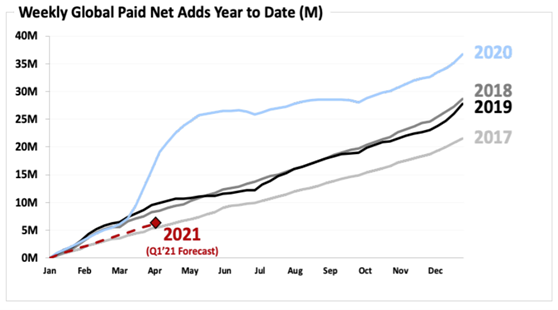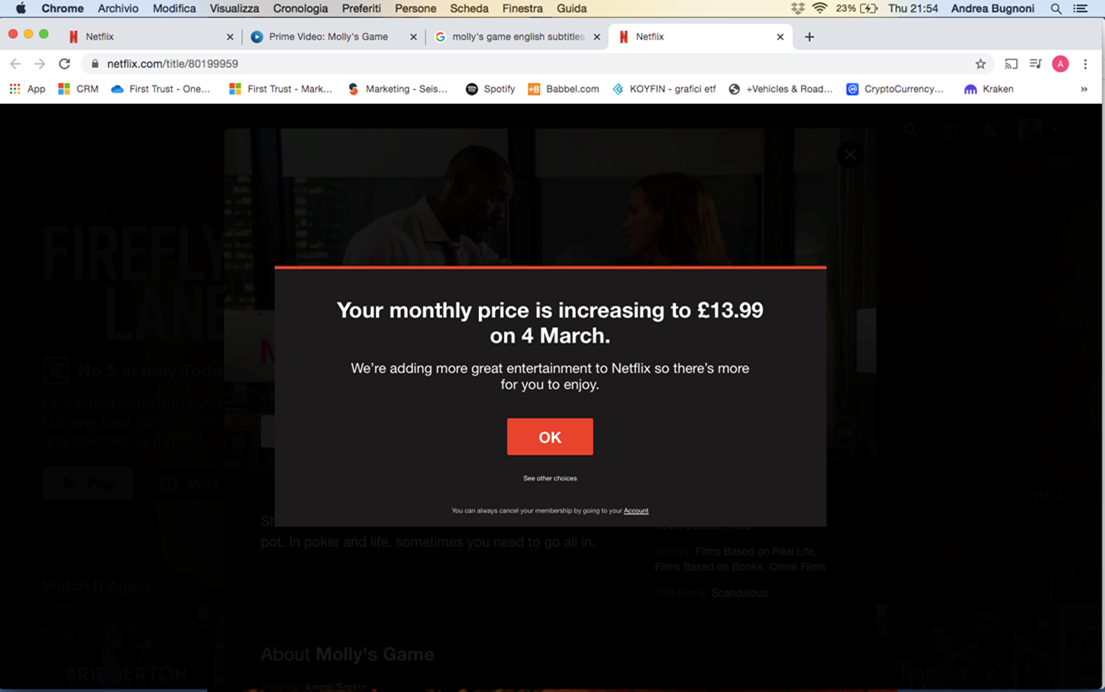Key takeaways
- With inflation expectations rising could Netflix be an unexpected hedge?
- We’ve seen a seismic shift to a subscription economy brought about by a growing preference to subscribe to services rather than one off product offerings.
- Customers of subscription businesses tend to be stickier – Netflix has already demonstrated that it has pricing power and a loyal customer base.
We’re in a world where subscriptions are king. We’ve seen a seismic shift to a subscription economy brought about by a growing preference (both from businesses and consumers) to subscribe to services. Gartner predicts that by 2023, ‘75% of organisations selling direct to consumers will offer subscription services.’ It’s not hard to understand why – subscription models provide companies with predictable recurring revenues, improved visibility and built-in customer loyalty. For the consumer, they offer convenience, a more experience-led than product-led offering saving precious time and hassle. So what makes subscription businesses a good hedge for an inflationary environment? Let’s take Netflix as an example.

Netflix has been knocking it out of the park recently, up 53% in the last year a clear beneficiary of the pandemic-induced lockdowns with people forced to stay at home and find sources of entertainment. The Last Dance, Bridgerton, The Queen’s Gambit all became part of the cultural zeitgeist. In fact, Netflix series accounted for 9 out of the 10 most searched shows globally in 2020. To top it off, its Q4 results beat consensus estimates – achieving $25bn in annual revenue (+24% YoY) and crossing the 200m subscribers mark. A crucial point to make is that Netflix has managed to keep accelerating growth despite sustained price increases. In fact, subscribers have shown they are increasingly willing to pay higher subscription costs as they recognise the value in the service.
Does this image look familiar?





Share